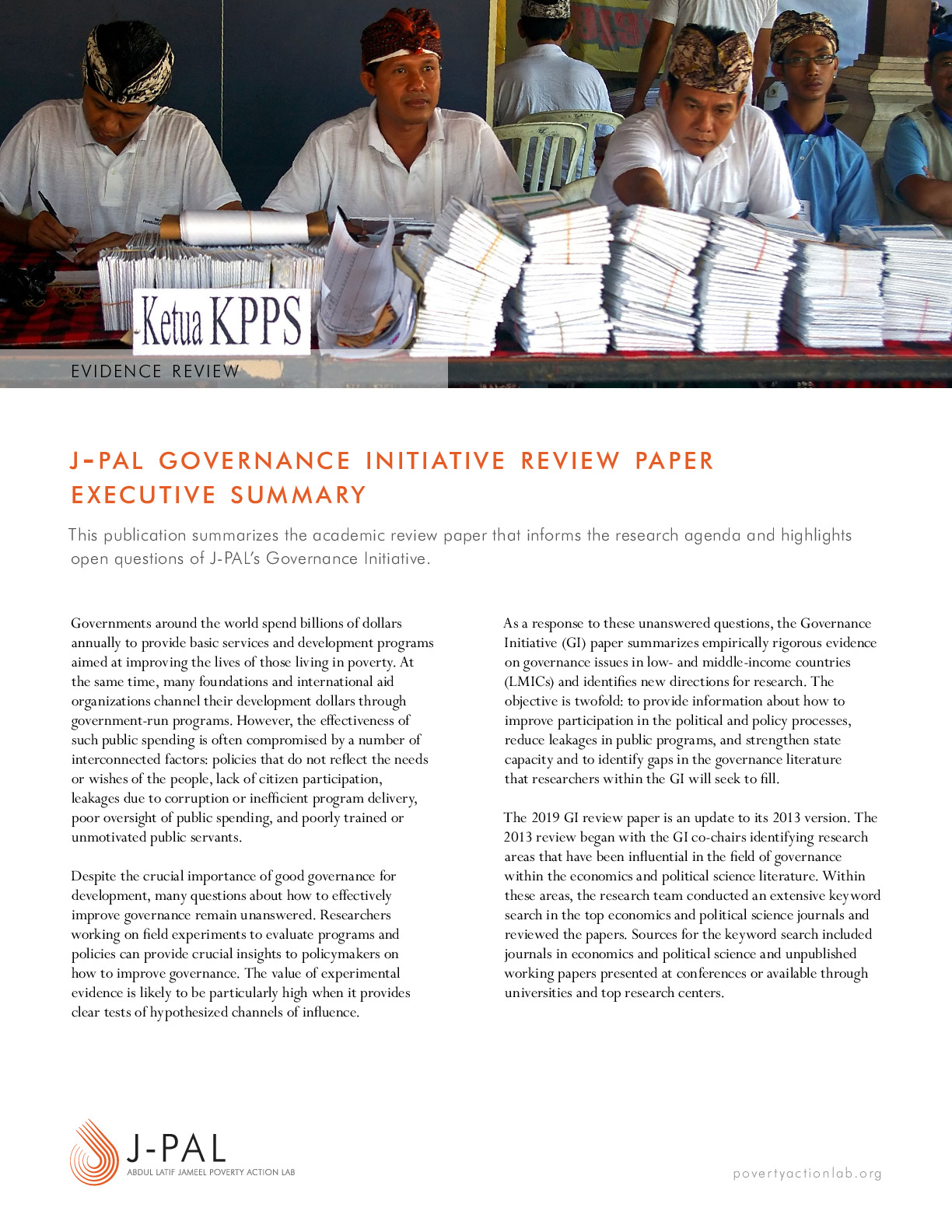Governance Initiative Review Paper Executive Summary
Governments around the world spend billions of dollars annually to provide basic services and development programs aimed at improving the lives of those living in poverty. At the same time, many foundations and international aid organizations channel their development dollars through government-run programs. However, the effectiveness of such public spending is often compromised by a number of interconnected factors: policies that do not reflect the needs or wishes of the people, lack of citizen participation, leakages due to corruption or inefficient program delivery, poor oversight of public spending, and poorly trained or unmotivated public servants.
Despite the crucial importance of good governance for development, many questions about how to effectively improve governance remain unanswered. Researchers working on field experiments to evaluate programs and policies can provide crucial insights to policymakers on how to improve governance. The value of experimental evidence is likely to be particularly high when it provides clear tests of hypothesized channels of influence.
As a response to these unanswered questions, the Governance Initiative (GI) paper summarizes empirically rigorous evidence on governance issues in low- and middle-income countries and identifies new directions for research. The objective is twofold: to provide information about how to improve participation in the political and policy processes, reduce leakages in public programs, and strengthen state capacity and to identify gaps in the governance literature that researchers within the GI will seek to fill.
